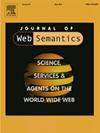公斤。GOV:知识图谱是人工智能数据治理的支柱
IF 3.1
3区 计算机科学
Q3 COMPUTER SCIENCE, ARTIFICIAL INTELLIGENCE
引用次数: 0
摘要
随着(生成式)人工智能的不断发展,与管理为其提供动力的数据相关的挑战也在不断发展。由于数据量和种类的增加、人工智能模型的复杂性以及技术进步的快速步伐,确保数据质量、隐私、安全和道德使用变得越来越具有挑战性。随着我们超越知识图谱作为数据组织系统的传统用途,知识图谱有可能在实现人工智能数据治理方面发挥重要作用。为了解决这个问题,我们提出了KG.gov,这是一个框架,它将kg置于人工智能工作流中更高的抽象级别,并使其成为人工智能数据治理的支柱。我们说明了KG.gov的三个维度:建模数据、替代表示和描述行为;并描述了实现它们的三个用例的见解和挑战:Croissant,用于建模和记录ML数据集的词汇表;WikiPrompts,一个协作的KG提示和提示工作流,用于大规模研究它们的行为;以及多模式转换,这是一种旨在扩大知识获取渠道的多模式知识协调和完成方法。本文章由计算机程序翻译,如有差异,请以英文原文为准。
KG.GOV: Knowledge graphs as the backbone of data governance in AI
As (generative) Artificial Intelligence continues to evolve, so do the challenges associated with governing the data that powers it. Ensuring data quality, privacy, security, and ethical use become more and more challenging due to the increasing volume and variety of the data, the complexity of AI models, and the rapid pace of technological advancement. Knowledge graphs have the potential to play a significant role in enabling data governance in AI, as we move beyond their traditional use as data organisational systems. To address this, we present KG.gov, a framework that positions KGs at a higher abstraction level within AI workflows, and enables them as a backbone of AI data governance. We illustrate the three dimensions of KG.gov: modelling data, alternative representations, and describing behaviour; and describe the insights and challenges of three use cases implementing them: Croissant, a vocabulary to model and document ML datasets; WikiPrompts, a collaborative KG of prompts and prompt workflows to study their behaviour at scale; and Multimodal transformations, an approach for multimodal KGs harmonisation and completion aiming at broadening access to knowledge.
求助全文
通过发布文献求助,成功后即可免费获取论文全文。
去求助
来源期刊

Journal of Web Semantics
工程技术-计算机:人工智能
CiteScore
6.20
自引率
12.00%
发文量
22
审稿时长
14.6 weeks
期刊介绍:
The Journal of Web Semantics is an interdisciplinary journal based on research and applications of various subject areas that contribute to the development of a knowledge-intensive and intelligent service Web. These areas include: knowledge technologies, ontology, agents, databases and the semantic grid, obviously disciplines like information retrieval, language technology, human-computer interaction and knowledge discovery are of major relevance as well. All aspects of the Semantic Web development are covered. The publication of large-scale experiments and their analysis is also encouraged to clearly illustrate scenarios and methods that introduce semantics into existing Web interfaces, contents and services. The journal emphasizes the publication of papers that combine theories, methods and experiments from different subject areas in order to deliver innovative semantic methods and applications.
 求助内容:
求助内容: 应助结果提醒方式:
应助结果提醒方式:


